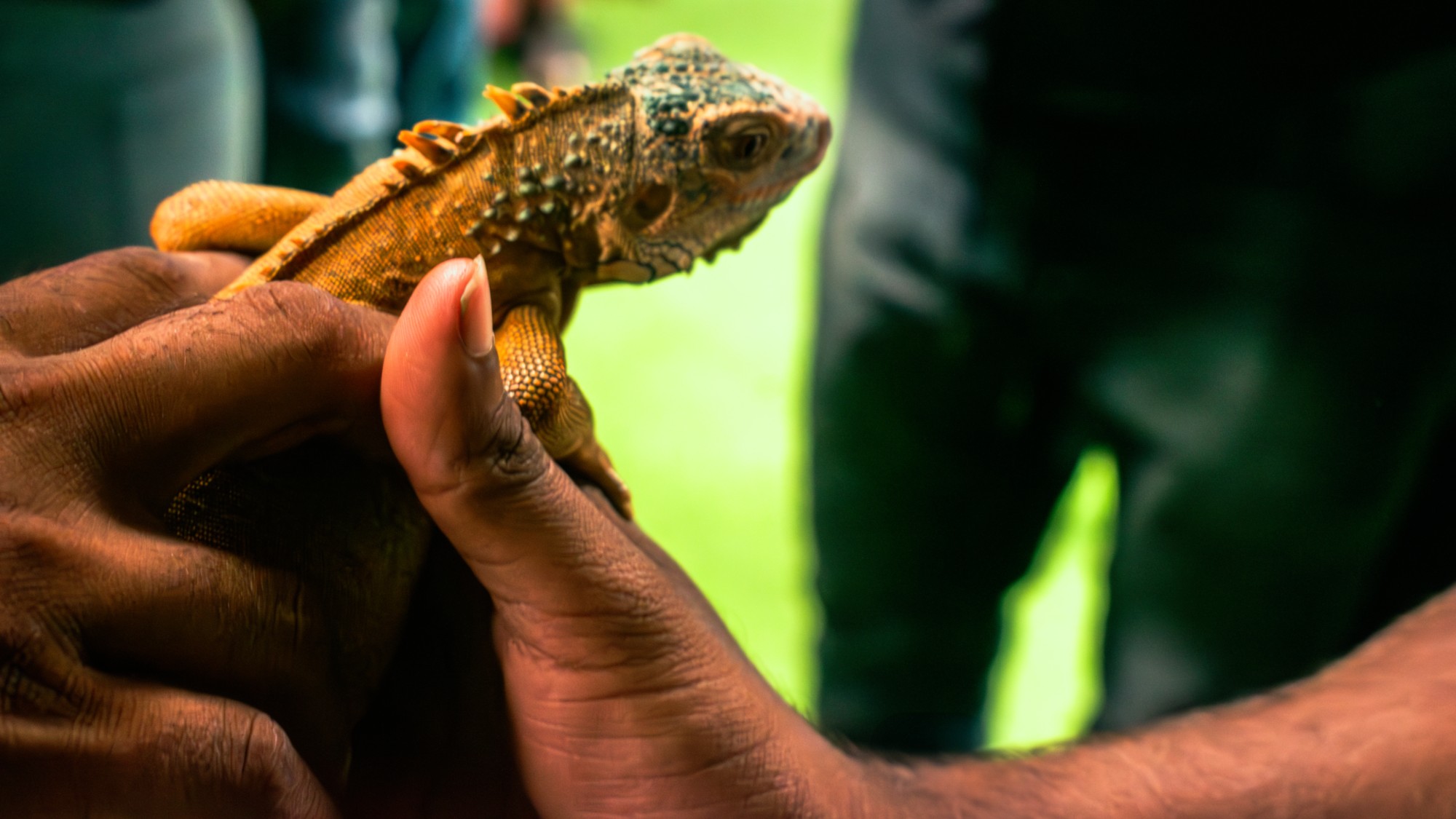Why spotted lanternflies are back and worse than ever
It's time to get squashing!


A free daily email with the biggest news stories of the day – and the best features from TheWeek.com
You are now subscribed
Your newsletter sign-up was successful
Spotted lanternflies have once again been spotted in swarms across the northeast. Experts advise you to kill them if you see them because the insects are invasive species that harm the ecosystem.
What is the spotted lanternfly?
The spotted lanternfly is an insect native to China that was first spotted in the U.S. in Pennsylvania in 2014, according to the U.S. Department of Agriculture (USDA). The insect feeds "on a wide range of fruit, ornamental and woody trees, with tree-of-heaven being one of the preferred hosts." Through the transport of material infested with the flies or their eggs, the species has spread wide distances across the eastern U.S.
"The expansion of this pest has been fueled by its ability to hitch rides undetected on cargo and passenger vehicles," explained Earth.com. Spotted lanternflies also have no natural predators in this ecosystem because they are not native to the region, allowing them to grow exponentially in population. In 2023, the species has spread to 14 states.
The Week
Escape your echo chamber. Get the facts behind the news, plus analysis from multiple perspectives.

Sign up for The Week's Free Newsletters
From our morning news briefing to a weekly Good News Newsletter, get the best of The Week delivered directly to your inbox.
From our morning news briefing to a weekly Good News Newsletter, get the best of The Week delivered directly to your inbox.
Why are they harmful?
Spotted lanternflies are an invasive species, meaning they are an "introduced, nonnative organism … that has the potential to cause harm to the environment, the economy, or to human health," per the U.S. Geological Survey. While this species, in particular, is not harmful to humans or animals, it is harmful to over 100 plant species, Time reported. "They insert their straw-like beaks into the plant and feed on the sap," Julie Urban, associate professor at Penn State's entomology department, told the source.
The insects cause "serious damage including oozing sap, wilting, leaf curling and dieback in trees, vines, crops and many other types of plants," according to the Pennsylvania Department of Agriculture. In addition, "they excrete a sugary substance, called honeydew, that encourages the growth of black sooty mold." While the black mold doesn't harm humans, it is harmful to plants.
Aside from ecological consequences, the flies also disturb our quality of life. The large presence of the bugs is "aggravating" and "sitting or crawling, they're ready to launch in an instant and they're elusive as well as fast," CBS News reported. This makes it difficult to enjoy time outdoors.
How can you get rid of them?
The Pennsylvania Dept. of Agriculture advises you to "Kill it! Squash it, smash it...just get rid of it," especially now because, "In the fall, these bugs will lay egg masses with 30-50 eggs each." Given the vast numbers, actively eliminating the insects can help slow growth. "We do hope to slow the spread to give us more time to learn about this," Brian Eshenaur, who works with the New York State Integrated Pest Management Program, told Time.
A free daily email with the biggest news stories of the day – and the best features from TheWeek.com
Aside from just squashing them, "you can suck them up into a vacuum cleaner and then just leave them sit for a couple of days and they'll die in there," Penn State lantern fly expert Emelie Swackhammer, told CBS News. However, it's best not to use very intense methods of eliminating the bugs. "There are people who are dumping all sorts of pesticides on these guys and not following proper procedures, or lighting things on fire to try to get rid of them," Anne Johnson, a doctoral researcher at Penn State who studies spotted lanternflies, told Vox. "You don't need to be that extreme. You are probably causing more damage that way."
In reality, "it's a pest we'll learn to live with," explained Eshenaur, adding that complete eradication is likely not possible. "They will keep coming for a little while but it's about a two or three-week period when the adults have this behavior," Swackhammer said. However, doing nothing will cause them to return in bigger numbers next year.
Devika Rao has worked as a staff writer at The Week since 2022, covering science, the environment, climate and business. She previously worked as a policy associate for a nonprofit organization advocating for environmental action from a business perspective.
-
 How the FCC’s ‘equal time’ rule works
How the FCC’s ‘equal time’ rule worksIn the Spotlight The law is at the heart of the Colbert-CBS conflict
-
 What is the endgame in the DHS shutdown?
What is the endgame in the DHS shutdown?Today’s Big Question Democrats want to rein in ICE’s immigration crackdown
-
 ‘Poor time management isn’t just an inconvenience’
‘Poor time management isn’t just an inconvenience’Instant Opinion Opinion, comment and editorials of the day
-
 Russia’s ‘cyborg’ spy pigeons
Russia’s ‘cyborg’ spy pigeonsUnder the Radar Moscow neurotech company with Kremlin-linked funding claims to implant neural chips in birds’ brains to control their flight, and create ‘bio-drones’
-
 How roadkill is a surprising boon to scientific research
How roadkill is a surprising boon to scientific researchUnder the radar We can learn from animals without trapping and capturing them
-
 The ocean is getting more acidic — and harming sharks’ teeth
The ocean is getting more acidic — and harming sharks’ teethUnder the Radar ‘There is a corrosion effect on sharks’ teeth,’ the study’s author said
-
 Cows can use tools, scientists report
Cows can use tools, scientists reportSpeed Read The discovery builds on Jane Goodall’s research from the 1960s
-
 Parthenogenesis: the miracle of 'virgin births' in the animal kingdom
Parthenogenesis: the miracle of 'virgin births' in the animal kingdomThe Explainer Asexual reproduction, in which females reproduce without males by cloning themselves, has been documented in multiple species
-
 Canyons under the Antarctic have deep impacts
Canyons under the Antarctic have deep impactsUnder the radar Submarine canyons could be affecting the climate more than previously thought
-
 A rat infestation is spelling trouble for the almond industry
A rat infestation is spelling trouble for the almond industryThe Explainer The infestation has affected at least 100,000 acres in California
-
 Rabbits with 'horns' sighted across Colorado
Rabbits with 'horns' sighted across Coloradospeed read These creatures are infected with the 'mostly harmless' Shope papilloma virus
